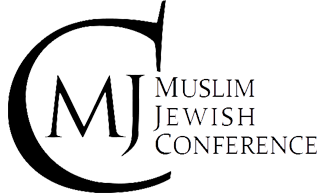Seventh Annual MJC (7 th -14 th August 2016) – Berlin, Germany

Berlin is the capital of Germany and one of its 16 states. With a population of approximately 3.5 million people, it is the second most populous city in the European Union. First documented in the 13th century and situated at the crossing of two important historic trade routes, Berlin has remained the capital of successive empires that ruled the region from 1417 onwards. After World War II, the city was divided; East Berlin became the capital of East Germany while West Berlin became a de facto West German exclave, surrounded by the Berlin Wall (1961–1989) and East Germany territory. Following German reunification in 1990, Berlin was once again designated as the capital of united Germany.
Berlin is a melting pot of nationalities and cultures and has thriving Muslim and Jewish communities.
A majority of the approximately 40,000 Jews now residing in Berlin have come from the former Soviet Union (now Russia). Additionally, Berlin is considered to contain one of the fastest growing Jewish communities in the world due to Russian, Israeli and German Jewish immigrants, whose ancestors fled Germany during World War II. And this upsurge in the Jewish population has also spurred tourism to an array of monuments, synagogues, museums and workaday places related to Jewish history and present life in Germany’s capital.
Of the approximately 160,000 Muslim foreigners in Berlin, about 73% are of Turkish background, 7% from Bosnia-Herzegovina, and 4% are from Lebanon. The total foreign population of Berlin is estimated at 466,518. In addition to these numbers, it is assumed that there are at least 40,000 Muslims in the city who are naturalized German citizens. The size of the Muslim population in Berlin stands at approximately 9% of the city’s total population.
At the MJC 2016, participants will be invited to attend the following committees:-
1. Conflict Transformation
This committee will cover different modules of conflict transformation methods and tools in the interfaith context. With a good understanding of conflict and ways of addressing it, the group will share best practices and develop recommendations for community engagement in the areas where participants are actively involved. For activists, facilitators and community developers.
2. Power, Religion, and Human Rights
This committee will be exploring the ways in which religion allows actors (on both political and individual levels) to exert authority upon one another, while also looking at the politicization of religion as well as the different aspects and roles of gender in the religious and cultural context.
3. Us and Them: Encountering Marginalization
This committee will immerse itself in the experiences of religious and ethnic minorities by examining the (i) origin of attitudes that lead to instances of Islamophobia, Antisemitism and Hate Speech and (ii) prevailing examples of discrimination sanctioned by States. You can expect a lot of interactive activities and watching short movies followed by in-depth discussions.
4. Arts and Culture
We are committed to creative engagement with our chosen theme of “refuge,” a concept we will explore in terms of our religious communities, our nationalities, and our multidimensional personal identities. Through storytelling and an array of artistic experiments, we will work together to find new modes of expression and develop meaningful tools for dialogue and learning.
5. Project Committee
This committee will gather experienced, and new social change makers from diverse backgrounds with an interest in delivering their work to reflect interfaith, and inter-cultural contexts. This committee provides a unique opportunity for those dedicated to value driven social change to step away from the day to day challenges, and in a safe space; reflect on your leadership, build new networks, learn from peers, and, gain expert skills.
6. Historical Narratives and Identity
This committee aims to explore the concepts of the identity and historical narratives. During the sessions, we will aim to analyze the construction of our multiple identities and how they are connected to the historical narratives that we are familiar with. The concept and idea of History will also be studied and analyzed with the goal of understanding the existence of more than one narrative in every situation. The focus will lie on the realization of a diverse and plural perspective of everyday life. The Committee will bring personal experiences and case studies from the participants in order to achieve its purposes.
